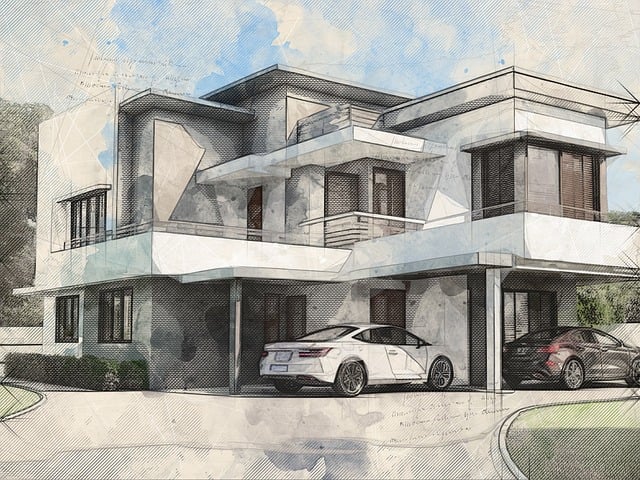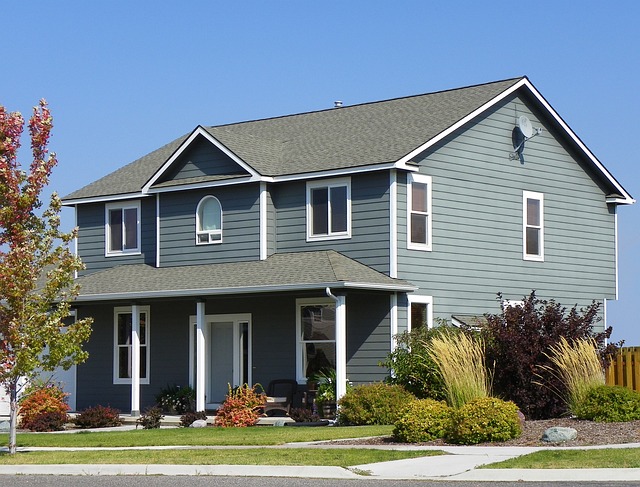Executive Condos (ECs) in Singapore's real estate market are a unique category of housing designed for middle-income families, blending elements of public and private living. These properties come with an initial nine-year lease, renewable to a 99-year lease contingent on certain conditions, and their pricing is influenced by factors such as location, unit type, amenities, and broader economic trends. The proximity to essential services like schools, malls, and transportation can enhance their value. Market sentiment, interest rates, and government policies are significant in shaping EC price trends, with potential for market shifts following policy changes or rate adjustments. Investors considering the EC market should analyze historical data, current conditions, and future projections, taking into account location, development age, and market dynamics, to make informed decisions on investment, purchase, or sale. The 2023 outlook for ECs suggests a complex interaction between market trends, regulatory changes, and economic indicators will influence their valuation, with new projects, policy adjustments, and regional economic health playing key roles in their future pricing and desirability.
navigatorsthe market dynamics of Executive Condos are pivotal for prospective buyers and investors alike. This comprehensive analysis delves into the multifaceted factors influencing the pricing of Executive Condos in Singapore, shedding light on their historical price trends and current demand-supply equilibrium. With a keen eye on past patterns and future projections, this article equips readers with the insights necessary to make informed investment decisions regarding Executive Condos.
- Understanding the Market Dynamics of Executive Condos
- Factors Influencing the Pricing of Executive Condos
- Historical Price Trends for Executive Condos in Singapore
- The Demand-Supply Equilibrium and Its Impact on Executive Condo Prices
- Future Projections and Investment Considerations for Executive Condos
Understanding the Market Dynamics of Executive Condos

In the realm of property investment in Singapore, understanding the market dynamics of Executive Condos (ECs) is pivotal for both potential buyers and investors alike. ECs are a unique hybrid of public and private housing designed for middle-income families, offering a nine-year base lease with the option to upgrade to a 99-year lease upon satisfying specific criteria. The pricing of these units is influenced by various factors, including location, unit type, amenities, and the broader economic climate. Proximity to essential facilities like schools, shopping centers, and transportation hubs can significantly impact EC prices, as demand for such conveniently located residences often drives up valuations. Market sentiment, interest rates, and government policies also play a crucial role in shaping the price trends of ECs. Investors should keep an eye on these factors, as they can lead to fluctuations in the market. For instance, when the government tweaks housing policies or interest rates change, it can affect purchasing power and demand for ECs, consequently influencing their prices. A thorough analysis of historical data, current market conditions, and future projections is essential for anyone looking to navigate the Executive Condo market effectively. This understanding will help in making informed decisions regarding investment, purchase, or sale within this vibrant segment of Singapore’s property landscape.
Factors Influencing the Pricing of Executive Condos

The pricing of Executive Condos (ECs) in Singapore is influenced by a multitude of factors that reflect both market dynamics and the unique nature of these properties. Prime among these factors are location and the age of the development. ECs situated in mature estates with established amenities, well-regarded schools, and convenient transport options tend to command higher prices due to their desirability. Additionally, the age of the EC plays a significant role; newer units typically attract higher prices as they come with fresh interior designs, better fittings, and modern conveniences that appeal to contemporary tastes. The supply of new ECs released by the government through the Sales of Balance Flats (SBF) exercise can also affect pricing, as can any changes in government policies that may influence the eligibility criteria or incentivize purchases. Market sentiment and broader economic conditions are further factors; during periods of economic growth or when there is a shortage of housing supply, prices for ECs can rise. Investor demand and the resale market’s performance also impact pricing, as do any developments in the surrounding area that could enhance the living experience, such as new commercial hubs, shopping centers, or parks. Prospective buyers looking to understand the pricing dynamics of Executive Condos should consider these factors in conjunction with current market trends and their specific needs and preferences.
Historical Price Trends for Executive Condos in Singapore

Over the years, the prices of Executive Condominiums (ECs) in Singapore have exhibited a dynamic trend that reflects both market conditions and policy adjustments by the government. Historically, EC prices have been influenced by factors such as the maturity of the project, its location, the balance of supply and demand, and broader economic indicators. For instance, following the initial launch of an EC, prices tend to be higher due to the allure of newer units. However, as the development matures, prices often adjust downward, making these homes more accessible to middle-income families. Notably, government policies, including eligibility criteria for purchasing an EC and the introduction of cooling measures, have also played a significant role in shaping price trends. Investors and homeowners alike keep a close eye on these trends, as they can offer insights into potential future movements in the property market. The Singaporean real estate landscape has seen ECs as a popular alternative to both public housing and private condominiums, given their affordability and the benefits of subsidy eligibility for the first few years post-purchase. As such, tracking the historical price trends of Executive Condos is essential for anyone interested in understanding the broader patterns within Singapore’s property market.
The Demand-Supply Equilibrium and Its Impact on Executive Condo Prices

In the dynamic Singapore property market, the demand-supply equilibrium plays a pivotal role in shaping the prices of Executive Condos (ECs). When the supply of available EC units is low relative to the demand from eligible applicants, prices tend to rise as buyers compete for these coveted homes. Conversely, an oversupply of ECs in the market can lead to a softening of prices as sellers vie for the attention of prospective buyers. This equilibrium is influenced by various factors, including economic conditions, population growth, and government policies that govern eligibility and supply release schedules. For instance, when new projects are introduced at a slower pace, existing ECs may experience an uptick in prices due to reduced competition among sellers and sustained demand from buyers. On the other hand, if new EC developments are launched frequently, this can increase the inventory of available units, potentially leading to a decline in prices unless demand increases proportionally. Understanding the nuances of this equilibrium is crucial for investors and homeowners alike, as it directly impacts the affordability and accessibility of these housing options within the vibrant Singaporean living landscape.
Future Projections and Investment Considerations for Executive Condos

Navigating the future projections for Executive Condos involves a nuanced understanding of market trends, government regulations, and broader economic indicators. Prospective investors and residents alike are keenly interested in how these factors will influence Executive Condo prices, given their unique status as mid-market housing with benefits similar to public housing but with the option to be sold on the open market after a minimum occupation period. As new projects come online, supply dynamics and consumer preferences will play a significant role in determining price trends. For instance, projects situated near mass transit hubs or in areas with developing infrastructure may see an uptick in demand, potentially leading to higher prices. It is also imperative to consider the impact of policy changes by the government on housing grants and loan eligibility, which can significantly affect affordability and investment attractiveness for these condos.
Investment considerations for Executive Condos are multifaceted, hinging on factors such as location, unit type, and the overall economic climate. A strategic analysis of historical pricing data, coupled with an understanding of demographic shifts and employment trends in the region, can provide valuable insights into potential future prices. For those considering an investment, it is crucial to stay informed about upcoming developments in the area, as these can have a profound impact on desirability and value. Additionally, changes in interest rates and mortgage policies can influence buying power and affect the market dynamics of Executive Condos. Prospective investors should also take into account the balance between supply and demand within the market segment, as well as any planned infrastructure developments that could enhance or detract from the appeal of these condos.
In conclusion, the market dynamics surrounding Executive Condos in Singapore are complex and influenced by a myriad of factors, including geopolitical shifts, economic conditions, and demographic changes. Historical price trends for Executive Condos reveal a pattern that underscores their unique position within the property landscape. The demand-supply equilibrium plays a pivotal role in shaping prices, with fluctuations in availability and buyer interest leading to notable market movements. Investors are advised to closely monitor these trends and factors to make informed decisions. Looking ahead, projections suggest a continuation of the current price trajectory for Executive Condos, with potential for moderate growth. Prospective buyers and investors should consider how broader economic signals and policy adjustments could influence their investment over time. As the market evolves, staying abreast of these developments remains crucial for anyone interested in the Executive Condo segment of Singapore’s property market.



